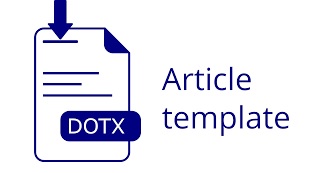Effectiveness of One-Stop Administrative Services for the Community
DOI:
https://doi.org/10.30656/sawala.v10i2.5568Keywords:
effectiveness, administration, societyAbstract
Administrative services that often occur are considered low quality due to lack of human resources, unclear time certainty and inadequate infrastructure, thus giving a bad assessment from the community. This is the background behind the formation of the Minister of Home Affairs Regulation No. 24 of 2006 regarding PTSP (One Stop Integrated Implementation Guidelines) to improve the quality of public services to the community organized by the government. However, the implementation of PTSP has yet to be implemented in all Indonesian government institutions because several institutions still have difficulties and doubts about its effectiveness. This is the author's background to discuss the Effectiveness of One Stop Administration Services for the Community. This study aims to determine whether there is effectiveness and the level or value of effectiveness provided in providing administrative services for the community through a one-stop line or system in City Y. The method used is descriptive quantitative with data collection techniques, namely observation and interview documentation.
Moreover, the distribution of the questionnaire to 100 respondents who were selected by purposive sampling. The study results show that the one-stop administrative service is quite effective at 30%. However, it is insignificant in its effectiveness because it still requires adaptation to the system and improvements in various ways.
References
Lift, Koko Mulyanti, et al. 2017. Analysis of Population Administration Services at the Population and Civil Registration Service of Dairi Regency. Journal of Public Administration 7(1): 33-48.
Anisa, Dwi Lutfi Nur, et al. 2017. Effectiveness of Community-Based One-Stop Integrated Services at the Ministry of Religious Affairs of Jombang Regency. Islan Journal of Educational Administration 1(1): 84-111.
Febliany, Imelda, et al. 2017. The Effectiveness of One-Stop Integrated Services towards Investment Absorption in East Kalimantan (Study at the Regional Licensing and Investment Agency of East Kalimantan Province). Journal of Administrative Reform 2(3): 410-450.
Fitriyansyah, Rizky, et akl. 2020. Effectiveness of One-Stop Integrated Services in Improving the Quality of Public Services at the Aceh Province Investment and One-Stop Integrated Services Office. Visionary 12(4): 685-694.
Frans, Marsheila M, et al. 2022. The Effectiveness of The Implementation of Licensing Services in the South Minahasa Regency (Study Of The Investment Office And One-Stop Integrated Services Of the South Minahasa Regency). Journal of Governance 2(1): 1-11.
Ginting, Lia Melanie, et al. (2018). Implementing Non-Licensing One-Stop Integrated Services Measured from Community Satisfaction Using Community Satisfaction Index. Responsive 1(2): 45–55. Responsive 1(2): 45–55.
Ningrum K. S., Berthanilla, R., & Sururi, A. (2020). One Stop Service Public Innovation in The Non TPI Class I Immigration Office, Serang City, Indonesia. Indonesian Journal of Social Science Research, 1 (1), 19 – 24. doi: 10.11594/ijssr.01.01.03
Rahmawati, Zuriyah Evi and Itok Dwi Kurniawan. 2021. Optimization of Population Administration Services through Village Counter Innovation in Karanglor Village, Manyara District, Wonogiri Regency. Journal of Research Innovation 2(3): 931-936.
Rudyansyah, Yurri Apriana, et al. 2021. Quality of Population Administration Services During the Covid-19 Pandemic at the Population and Civil Registration Service. Journal of Performance 18(4): 513-320.
Rukayat, Y. (2017). Quality of Public Services in the Field of Population Administration in Pasirjambu District. Scientific Journal of Master of Administrative Sciences 2(11): 56–65.
Salim & Haider. (2019). Educational Research: Methods, Approaches, and Types (First Edition). Jakarta: Kencana.
Saputra, Munir and A.H. Rahadian. 2018. Analysis of the Effectiveness of District Integrated Administration Services (Paten) in Cimanggis District, Depok City. Journal of Administrative Reform 5(1): 165-173









